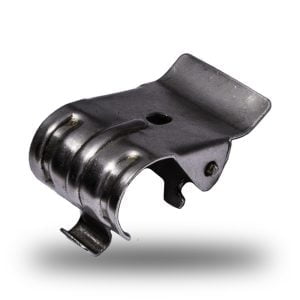 Introduction
Introduction
In every industrial environment — from food processing plants to marine engineering and construction — the fasteners holding it all together play a critical role. The material used in these components determines not only their lifespan but also the safety and integrity of the structures they support. Among the options available, stainless steel fasteners stand out as the most dependable choice for South African industries due to their unmatched resistance to corrosion, superior strength, and hygienic properties.
South Africa’s unique climate — a mix of coastal humidity, heat, and seasonal rainfall — accelerates corrosion in ordinary metals. Stainless steel fasteners, however, provide a sustainable solution by maintaining performance in harsh environmental conditions without the need for frequent replacements.
The Corrosion Resistance Advantage
Corrosion is the silent enemy of industrial equipment. It weakens joints, causes leaks, and compromises safety over time. Stainless steel’s primary defence lies in its chromium oxide layer, a thin, invisible film that naturally regenerates when exposed to oxygen (Source: International Stainless Steel Forum, 2023).
This self-healing ability makes stainless steel ideal for outdoor installations and marine environments such as docks, boats, and coastal factories. In South Africa, where coastal humidity often exceeds 75% (South African Weather Service, 2024), mild steel or zinc-coated fasteners deteriorate rapidly. Stainless steel grades such as A2 (304) and A4 (316) retain integrity far longer — the latter offering additional protection against chlorides and acidic conditions.
When selecting fasteners, engineers must consider the operating environment. For example:
A2 stainless steel suits general industrial and construction use.
A4 stainless steel is recommended for marine or chemical environments.
By using stainless steel, businesses reduce maintenance costs and downtime — essential for maintaining profitability in ZAR-sensitive industries.
 Strength, Durability, and Load Performance
Strength, Durability, and Load Performance
Industrial fasteners must withstand immense tension, vibration, and thermal expansion. Stainless steel offers the perfect balance between tensile strength and ductility, ensuring joints remain tight even under fluctuating loads.
Unlike plated alternatives, stainless steel retains its mechanical integrity even after years of exposure to high stress or heat. This is why stainless fasteners are commonly used in:
Mining and heavy manufacturing equipment.
Food and beverage processing lines.
Construction frameworks and transport vehicles.
Can you afford to risk a structural failure due to corroded bolts? The long-term durability of stainless steel translates directly into safety and reliability — two factors that define responsible engineering.
Furthermore, stainless steel’s yield strength (205 MPa for 304 grade and up to 515 MPa for 316 grade) meets or exceeds many SABS 1700 specifications for fasteners used in construction (SABS, 2023).
Hygiene and Food Safety Compliance
For the food, beverage, and medical industries, cleanliness is as critical as strength. Stainless steel’s non-porous surface prevents bacteria accumulation and withstands harsh cleaning agents. This property is why stainless steel fasteners are standard in kitchens, abattoirs, dairies, and pharmaceutical environments.
Regulatory standards such as SANS 1828:2022 emphasise the importance of hygienic materials in food-contact applications. Stainless steel complies fully, making it the default material for sanitary fittings and fasteners.
Venture Products supplies a wide range of stainless-steel hardware including toggle latches, hinges, strikers, and brackets that meet strict hygiene and corrosion-resistance requirements. These can be explored at Venture Products Shop.
Cost Efficiency Over the Product Lifecycle
At first glance, stainless steel fasteners may seem more expensive than mild steel or zinc-coated alternatives. However, their longer lifespan, reduced maintenance, and minimal replacement frequency make them far more economical over time.
A study by the Nickel Institute (2022) found that stainless steel components typically last three to five times longer in coastal or industrial conditions compared to carbon steel. The reduced labour and material costs make stainless steel an intelligent long-term investment, especially in projects where downtime is costly.
How does this impact your bottom line? In ZAR terms, even a 20% initial cost premium can yield savings of up to 40% over a 10-year maintenance cycle when using stainless steel fasteners.
Environmental and Sustainability Benefits
Stainless steel is 100% recyclable. Its durability means less frequent manufacturing, reducing overall carbon emissions across its lifecycle. For South African industries moving towards greener production standards, stainless steel supports ESG compliance without compromising performance.
Because stainless steel components can be re-melted and reused indefinitely without losing quality, they align perfectly with circular economy principles promoted by SABS ISO 14021:2021 for sustainable materials.
Venture Products sources and manufactures components that meet these sustainability expectations, helping clients reduce their environmental footprint while maintaining mechanical reliability.
Choosing the Right Stainless Steel Fastener for Your Application
Selecting the right grade and design is crucial to achieving the desired performance. Consider the following:
Environment: Is it coastal, industrial, or indoors?
Load requirement: Determine shear and tensile forces expected.
Hygiene standards: Is the installation food-safe or medical-grade?
Aesthetic needs: For visible installations, polished finishes reduce surface staining.
For high-performance options, explore Venture Products’ full catalogue of toggle latches, hinges, and fastener accessories available here.
FAQ
1. Why is stainless steel preferred over galvanised steel fasteners?
Stainless steel provides superior corrosion resistance without the need for protective coatings, ensuring longer service life and less maintenance.
2. Which stainless steel grade should I choose for marine applications?
A4 (316) stainless steel is ideal due to its high molybdenum content, which resists saltwater corrosion.
3. Can stainless steel fasteners rust?
Under extreme conditions or contamination from carbon steel, surface staining can occur, but it doesn’t compromise structural integrity.
4. Are stainless steel fasteners magnetic?
Most grades (such as 304 and 316) are non-magnetic, though some cold-worked fasteners may show slight magnetism.
5. How should stainless steel fasteners be maintained?
Regular cleaning with mild detergents and avoiding contact with carbon steel tools will maintain their appearance and longevity.
6. Are stainless steel fasteners recyclable?
Yes. Stainless steel is 100% recyclable and retains its full strength after reprocessing.
7. Where can I buy stainless steel industrial fasteners in South Africa?
You can view and order directly from Venture Products.

 Introduction
Introduction Strength, Durability, and Load Performance
Strength, Durability, and Load Performance